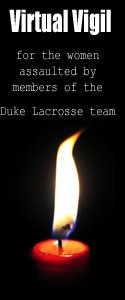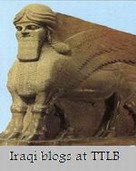jasbir puar's Terrorist Assemblages
Rayana and I were talking about this book and she said (giving her props) that this book seemed to be saying some new things. It really felt fresh. I agreed w/ her. Coming from Arab American Studies background, I was hard pressed to see anything that theoretically exciting happening, but it is bubbling up.
Nadine Naber and Evelyn Alsultany at University of Michigan Ann Arbor's American Culture program have some rigorous work that is going to challenge previous models of academic discursive practice. So do many other young Arab/Muslim academic mavericks like Steven Salaita and Khaled Mattawa as well as Carol Bardenstein. Sarah Gualtieri in ASE/History is doing important work on prerequisite cases and racial formation in early twentieth century Syrian and Lebanese immigrant groups/ diasporic communities.
This isn't about subject positions/or queering Arab/Muslim/South Asian writings. While Reading Terrorist Assemblages, I am in the midst of reading Desiring Arabs by Joseph Massad, Queer Diasporas, ed Patton and Sanchez-Eppler, and Queer Diasporas and South Asian Public Cultures by Gayatri Gopinath. They are all very engaging texts but Assemblages stands as exemplary, for me anyway, because of the ways in which she takes the marginality and invisibility of Arab/Muslim/queer subjects (topics, intellectuals, engagement with this arena) and also exposes the liberal gay (white) agenda in ways that really create productive fissures. She does not reproduce or reinscribe the same paradigms. Desiring Arabs is really grounded in incredible research but does not engage the queers of color/internation in ways that seem fruitful. His chapters on literary desires and close textual readings offer and queering of those texts. His key target, the 'gay internation', seems to be represented , in the end, as this monolithic entity that gets maligned and dismissed. Those sections read like diatribe and polemic verses really rigorous engagement with cultural objects. Puar really is an exemplary text for the kind of work I would love to be doing in ASE. So far, books I wish I had written or wish I had the talent to write: Terrorist Assemblages, An Archive of feelings, and Woman, Native, Other and Fuss's book on strategic essentialism: Essentially speaking? I know those are old school but when i was in grad school before, those were big books/ideas for me.
you guys are posting fun/cheeky music and ideas and i am being so serious. Sometimes, it feels like life and death for me. Can we say dramatic? i can be and i can also be uptight, socially awkward, overly eager, "trying too hard?". My therapist said i need a book on emotional intelligence because i tend not to know a dangerous situation/or something fraught with potential explosive and violent potential. then i tend to read/misread things. call it paranoia which i think is protective and sometimes keeps us safe rather than labeling it 'off'. or I am OFF. i have never been cool/
we are getting away from assemblages. Puar's book is puuuuuuurfect. loooking forward to engaging all of you with her constructs.
wish i could be think of something campy, funny (I am capable of humor!), but these days despondency and numbness are my friends. trying to break from the brooding /annoying persona and get happy or just wake up out of my (intellectual, aesthetic, sexual) coma. two decades: hard to shake off.
Nadine Naber and Evelyn Alsultany at University of Michigan Ann Arbor's American Culture program have some rigorous work that is going to challenge previous models of academic discursive practice. So do many other young Arab/Muslim academic mavericks like Steven Salaita and Khaled Mattawa as well as Carol Bardenstein. Sarah Gualtieri in ASE/History is doing important work on prerequisite cases and racial formation in early twentieth century Syrian and Lebanese immigrant groups/ diasporic communities.
This isn't about subject positions/or queering Arab/Muslim/South Asian writings. While Reading Terrorist Assemblages, I am in the midst of reading Desiring Arabs by Joseph Massad, Queer Diasporas, ed Patton and Sanchez-Eppler, and Queer Diasporas and South Asian Public Cultures by Gayatri Gopinath. They are all very engaging texts but Assemblages stands as exemplary, for me anyway, because of the ways in which she takes the marginality and invisibility of Arab/Muslim/queer subjects (topics, intellectuals, engagement with this arena) and also exposes the liberal gay (white) agenda in ways that really create productive fissures. She does not reproduce or reinscribe the same paradigms. Desiring Arabs is really grounded in incredible research but does not engage the queers of color/internation in ways that seem fruitful. His chapters on literary desires and close textual readings offer and queering of those texts. His key target, the 'gay internation', seems to be represented , in the end, as this monolithic entity that gets maligned and dismissed. Those sections read like diatribe and polemic verses really rigorous engagement with cultural objects. Puar really is an exemplary text for the kind of work I would love to be doing in ASE. So far, books I wish I had written or wish I had the talent to write: Terrorist Assemblages, An Archive of feelings, and Woman, Native, Other and Fuss's book on strategic essentialism: Essentially speaking? I know those are old school but when i was in grad school before, those were big books/ideas for me.
you guys are posting fun/cheeky music and ideas and i am being so serious. Sometimes, it feels like life and death for me. Can we say dramatic? i can be and i can also be uptight, socially awkward, overly eager, "trying too hard?". My therapist said i need a book on emotional intelligence because i tend not to know a dangerous situation/or something fraught with potential explosive and violent potential. then i tend to read/misread things. call it paranoia which i think is protective and sometimes keeps us safe rather than labeling it 'off'. or I am OFF. i have never been cool/
we are getting away from assemblages. Puar's book is puuuuuuurfect. loooking forward to engaging all of you with her constructs.
wish i could be think of something campy, funny (I am capable of humor!), but these days despondency and numbness are my friends. trying to break from the brooding /annoying persona and get happy or just wake up out of my (intellectual, aesthetic, sexual) coma. two decades: hard to shake off.





.jpg)







 -->
-->
3 Comments:
I just finished Puar's book. I also read Massad's book over the summer. Puar's work is superior to Massad's work for a couple of reasons: a) (a point you mentioned in your post about intersectionality, etc) Puar's idea of a "queer assemblage" allows us to conceive of different modalities of being and agency with respect to differences in space and time (in addition to race, gender, etc). b) puar frames her theory of "assemblages"in light of politics, institutions, law, and culture. By drawing on legal empirical evidence, she strengthens her all the more, especially in light of all the nay-sayers who say cultural levels of analyses are overdone and weak.
Massad's work, which problematizes the imparting of a western model of sexuality onto the Mid East quite nicely, does not offer us much by way of a critique of legal or institutional policies and their relationships to both Western LGBTIQ groups and LGBTIQ groups in the Mid east; this would have given him an argument beyond that of culture tolerance, etc. Every Saidain shortcoming present in Orientalism is all over Massad's book.
I am not sure how much sense that all made.
Also, it's Christina D. posting. I disappeared for a bit but now I am back. and you are too!
Hope all is well.
is your blog back up? send new url if there is one
it's at www.hausofintelligentsia.wordpress.com
I am still working on it; trying to make it awesome and what not.
Post a Comment
<< Home